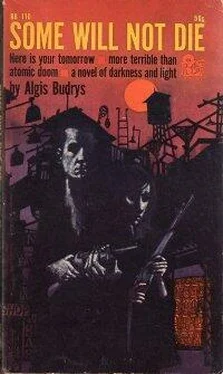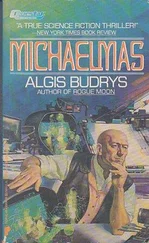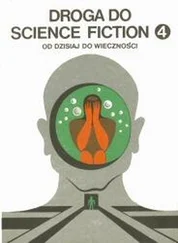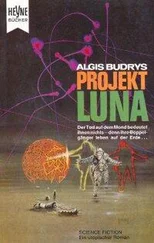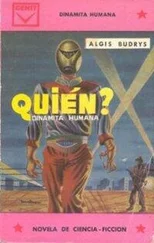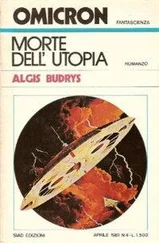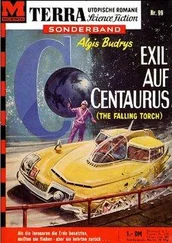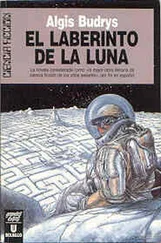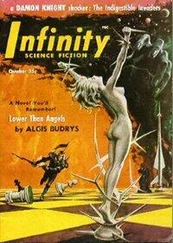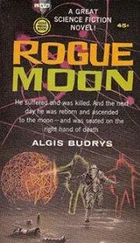Algis Budrys - Some Will Not Die
Здесь есть возможность читать онлайн «Algis Budrys - Some Will Not Die» весь текст электронной книги совершенно бесплатно (целиком полную версию без сокращений). В некоторых случаях можно слушать аудио, скачать через торрент в формате fb2 и присутствует краткое содержание. Год выпуска: 1961, Издательство: Regency Books, Жанр: Фантастика и фэнтези, на английском языке. Описание произведения, (предисловие) а так же отзывы посетителей доступны на портале библиотеки ЛибКат.
- Название:Some Will Not Die
- Автор:
- Издательство:Regency Books
- Жанр:
- Год:1961
- ISBN:нет данных
- Рейтинг книги:4 / 5. Голосов: 1
-
Избранное:Добавить в избранное
- Отзывы:
-
Ваша оценка:
- 80
- 1
- 2
- 3
- 4
- 5
Some Will Not Die: краткое содержание, описание и аннотация
Предлагаем к чтению аннотацию, описание, краткое содержание или предисловие (зависит от того, что написал сам автор книги «Some Will Not Die»). Если вы не нашли необходимую информацию о книге — напишите в комментариях, мы постараемся отыскать её.
Some Will Not Die — читать онлайн бесплатно полную книгу (весь текст) целиком
Ниже представлен текст книги, разбитый по страницам. Система сохранения места последней прочитанной страницы, позволяет с удобством читать онлайн бесплатно книгу «Some Will Not Die», без необходимости каждый раз заново искать на чём Вы остановились. Поставьте закладку, и сможете в любой момент перейти на страницу, на которой закончили чтение.
Интервал:
Закладка:
He flushed. Boyish excitability was no improvement.
Holland grunted and ran his eyes over the bright machine-gunned scars in the deck plywood. He shook his head. “That’s a tough nut down there.”
Ted nodded solemn agreement, instantly stabbed himself with the realization of solemnity, flushed again, and finally shrugged his mental shoulders and, for the hundredth time, gave up on the whole problem of being sixteen. Instead, he watched the shoreline slip by, but soon found himself unable to resist Manhattan’s lure. The skyscraper city bulked out the horizon in front of him, windows flashing in the sun.
He knew Holland was watching the look on his face, and he cursed himself for being conscious of it just because Holland had gotten him his first man- size rifle and taught him how to use it.
“Damn, it’s big,” he said.
Jack nodded. “Big, all right. Wonder how much more of it’s joined up since we left?”
“Not the West Side, that’s for sure.”
“Those boys aren’t ever likely to budge,” Holland said.
Ted nodded. Too solemnly, again.
Matt Garvin put the report down and sighed. Then he looked past Ted at Jack Holland with the quick sharpness of a man who knows that the other will understand him perfectly. “People in Philadelphia aren’t any different, are they?”
Jack smiled thinly, and Ted felt envy, as he always did whenever Jack and old Matt communicated in these sentences and short gestures that represented paragraphs of the past. He ruthlessly stifled a sigh of his own. When he and Jack had boarded the PT boat, a month before, he had vaguely hoped that something—some uncertain ordeal by fire or inconcise overwhelming experience—would give him that intangible which he recognized in Holland as manhood. He had hoped, as the PT growled slowly down the Jersey coast, that some sort of antagonist would put out from the shore or rise from the sea, and that, at the conclusion of the harrowing struggle, he would find himself spontaneously lean of cheek and jaw, carelessly poised of body, with automatically short and forceful sentences on his lips. But nothing had changed.
“What do you think?” Matt asked him.
The question caught him unaware. He realized he must have looked ridiculous with his absent gaze snapping precipitously back to Matt Garvin.
“About Philadelphia?” he said hastily. “I think we’ll have a hard time with them, Matt.”
Garvin nodded. “Which would mean you think we’re bound to run into those people sometime, right?”
“Ahuh.” He caught the smile on Jack’s lips again, and cursed inwardly. “Yes, I do,” he amended. Damn, damn, damn!
“Any special reason why you think so?”
Ted shrugged uncomfortably. He thought about his father less than he should have, probably. He only vaguely remembered the big man—bigger than lifesize, doubtless, in a child’s eyes—who had been so friendly. If he had seen his death, perhaps, he would have that missing thing to fill out his inadequacy—a cause, passed down, to be upheld and to which he could dedicate himself. But he had not seen his father die. Of it all, he remembered only his mother’s grief, still vaguely terrifying whenever too closely thought of.
He stood hopeless before Matt Garvin, with only reasoning to justify him. “I don’t know exactly, Matt,” he stumbled. “But they’re down there with Pennsylvania and New Jersey in their laps whenever they need them. They’re going to be crowding up this way in another twenty-five, thirty years. All we’ve got’s Long Island, and it’s not going to be enough to feed us by them. We’re stuck out here on this island. They could pinch us off easy.” He stopped, not knowing whether he’d said enough or too much.
Garvin nodded again. “Sounds reasonable. But this report doesn’t show any organization down there. How about that?”
Ted glanced quickly at Jack. If Holland hadn’t covered that in his report, it could only have been because he shared Ted’s opinion that the true situation was self-evident. The thought occurred to him that Garvin was testing his reasoning.
He felt even more unsure of himself now.
“Well,” he said finally, “I can’t think of anything about Philadelphia that would make people down there much different from us. I don’t see how they could have missed setting up some kind of organization. Maybe it works a little different from ours, because of some local factor, but it’s bound to be basically the same.” He stopped uncertainly. “I’m not making myself clear, am I?” he asked.
“It’s all right so far, Ted. Go on,” Garvin said, betraying no impatience.
“Well, it seems to me,” Ted went on, some of his inward clumsiness evaporating, “that you’d have a tough time spotting our kind of organization if you just took a boat into the harbor, like we did in Philly. Chances are, you wouldn’t run across our radio frequency. If you landed on the West Side, you’d run into the small outfits in the warehouses. Even if you happened to pick the organized territory—I don’t know; if somebody came chugging up the river, I wouldn’t be much likely to trust him, no matter what he tried to say. It’s the same old story. You can’t join up with anybody, anymore, unless it’s on your own terms. There’s been too much of our hard work and fighting done to keep our organization going. It doesn’t really matter whether they’ve had to do the same for themselves. Each of us is in the right, as far as we’re separately concerned. And it’d be a lot nicer, for us, if we were the ones who came out running things, because that’s the only way we could be sure all that work of ours hadn’t been for nothing.”
He stopped, thinking he’d finished, but as he did, another thought came to him.
“It’d be different, if there were a lot of things to negotiate about. Then there’d be room to talk in. I guess, maybe, if we keep organizing, we’ll work our way up to that point. But right now, it’s a pretty clear-cut thing, one way or the other. Nobody’s any better off than anybody else—if somebody was, we’d of heard from them by now. Looking at it from our viewpoint, then, it’s a lot better for our organization if we do all the deciding on who joins up with us. So, if somebody from outside comes nosing around, the best thing to do is just discourage him.” He broke off long enough to grin crookedly. “They sure discouraged us down at Philly.
“All we ever saw of Philadelphia itself was the waterfront. I’d say that almost anything could be going on down there, and we couldn’t spot it. You’d have to go deep into the town itself, into the residential area. The same way that somebody coming into Manhattan would have to get to the lower East Side. And I guess we’re pretty sure no stranger’s going to get that chance.”
“Hmmm.” Garvin was grinning at Jack, and Holland was smiling back. Ted stood awkwardly, looking from one to the other.
“All right, Ted,” Garvin said, turning back to him. “Looks to me like you kept your eyes open and your brain working.”
Faintly surprised, Ted acknowledged to himself that he probably had. But he’d devoted no special effort to it, and he’d certainly done nothing else to distinguish himself. The brief engagement in Philadelphia’s harbor had offered none of the many hoped-for opportunities to shed his adolescence. All in all, he didn’t know how to answer Matt now, and he was deeply grateful that no answer seemed to be expected.
“I guess that’s it, Ted. You might as well go home. Margaret’ll have supper going by now. Tell her I’ll be along in a while, will you? You and Jack take it easy for a day or two. I’ll be giving you something else to do pretty soon.”
“Right, Matt. See you tonight.” That, too, he thought, had been too crisply casual. He noticed that Jack had started to say something himself—probably the same thing, in effect, and had stopped abruptly, with that same half-concealed, knowing smile at Garvin. Damn, damn, God damn!
Читать дальшеИнтервал:
Закладка:
Похожие книги на «Some Will Not Die»
Представляем Вашему вниманию похожие книги на «Some Will Not Die» списком для выбора. Мы отобрали схожую по названию и смыслу литературу в надежде предоставить читателям больше вариантов отыскать новые, интересные, ещё непрочитанные произведения.
Обсуждение, отзывы о книге «Some Will Not Die» и просто собственные мнения читателей. Оставьте ваши комментарии, напишите, что Вы думаете о произведении, его смысле или главных героях. Укажите что конкретно понравилось, а что нет, и почему Вы так считаете.
